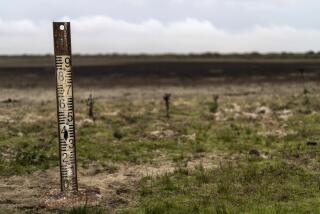European nations vote to lower protections for wolves after farmers push to allow culls

- Share via
BRUSSELS — European nations approved plans Tuesday to scale back the protection for wolves in a victory for farmers over environmentalists.
The European Union proposal was adopted by the 50 parties in the Bern Convention to protect wildlife and habitat. It sets up looser protection rules starting in March 2025 that will allow nations to hunt for wolves under specific circumstances.
Farmers in many member states have been increasingly angered by attacks on livestock by packs of wolves that have thrived in woods and fields close to agricultural land.
EU Commission President Ursula von der Leyen backed the measures and said the outcome was “important news for our rural communications and farmers” who had a right to better protection of their livelihoods. An ardent fan of horses, Von der Leyen had a pony that was killed by a wolf two years ago.
Experts and environmental groups estimate there could be 19,000 wolves across Europe, with large populations thought to roam in Bulgaria, Greece, Italy, Poland, Romania and Spain. Their numbers are estimated to have grown by 25% over the last decade.
Environmentalists say the animal is far from a potent threat in most nations.
Two new wolf packs were confirmed by wildlife officials this month, and explosive population growth could be around the corner.
“The wolf is still endangered in many parts of Europe, and weakening its protection will only lead to further conflict and threaten its recovery,” said Ilaria Di Silvestre, regional director of policy at the International Fund for Animal Welfare.
The EU decision lowers the protection status of wolves from “strictly protected” to “protected,” allowing for more measures to keep them at bay from farmers and the population.
Many EU environmental rules and regulations have come under pressure over the last two years, with populist and extreme-right parties criticizing the measures as being thought up by urban elites with little knowledge of rural life.
Center-right, conservative and far-right members of the European Parliament welcomed the move.
“We had to make life easier for shepherds and farmers in mountainous areas where the wolf has become a plague,” said MEP Pietro Fiocchi, who belongs to the far-right Brothers of Italy party.
In the Netherlands, parents were warned over the summer not to take young children to a popular forest area near the central city of Utrecht following two close encounters with a wolf displaying “atypical and worrying” behavior.
“There are children who no longer cycle to school because of the wolves,” said Dutch MEP Bert-Jan Ruissen, who is a member of the Christian Reformed Political Party in the Netherlands and the European Conservatives and Reformists group in the EU assembly. “We could not stand by and watch this problem get further and further out of control.”
Casert writes for the Associated Press.
More to Read
Sign up for Essential California
The most important California stories and recommendations in your inbox every morning.
You may occasionally receive promotional content from the Los Angeles Times.











